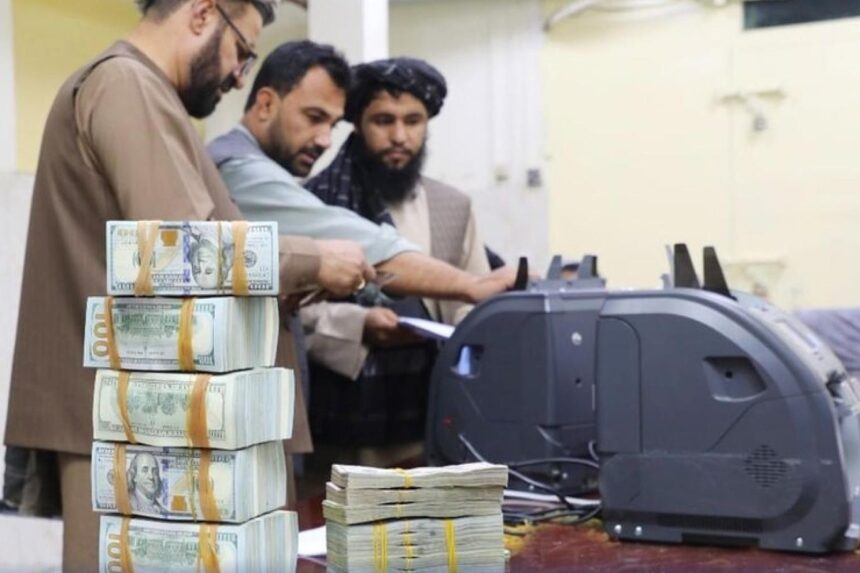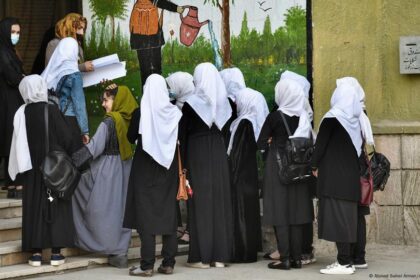RASC News Agency: Despite accumulating more than $50 billion in foreign aid, domestic revenue, and mineral wealth, the Taliban regime has presided over an economic and humanitarian collapse that has plunged Afghanistan deeper into poverty, hunger, and despair. In a detailed financial exposé, renowned Pashtun journalist and author Sayed Suleiman Ashna reveals the staggering scale of resources that have flowed into Taliban-controlled Afghanistan since their seizure of power in August 2021. Drawing on official figures, international reports, and insider data, Ashna estimates that the group has benefited from billions in international assistance, multi-sector investments, mineral extraction, and tax revenues, yet failed to improve the lives of ordinary Afghanistani citizens.
According to Ashna’s findings, from late 2021 through 2023, the Taliban signed contracts worth approximately $6.5 billion, largely centered on mining and extractive industries. Figures released by the Taliban’s Ministry of Mines indicate that ongoing operations could generate up to $2.6 billion by 2025 from mineral extraction alone. Meanwhile, in 2024, the Azizi Foundation announced a $10 billion investment plan under Taliban oversight, signaling what was portrayed as growing economic confidence though without accountability. The regime has also aligned itself with China’s China Pakistan Economic Corridor (CPEC) and brokered agreements related to the Uzbekistan–Afghanistan–Pakistan (UAP) railway. Ashna highlights 183 contracts for the extraction of fuel and rare minerals signed in provinces including Takhar, Herat, Logar, Ghor, Panjshir, and Nuristan regions rich in resources but neglected in terms of public service delivery.
International aid remains equally vast. According to U.S. government data, over $21 billion in humanitarian assistance has been delivered to Afghanistan since the Taliban’s return to power. The regime’s Ministry of Economy has reportedly overseen the distribution of $6.7 billion from international organizations. Additionally, remittances from Afghanistani expatriates have surpassed $1.5 billion, and private investment flows have exceeded $1 billion under the Taliban’s rule. Yet, despite these enormous figures, the humanitarian reality in Afghanistan is grim and worsening. Ashna’s report paints a devastating picture: poverty and hunger have intensified, families are increasingly unable to afford basic housing, and in many districts, schools are either dysfunctional or shut down entirely. For girls and women, access to education remains brutally restricted or outright banned. Healthcare services are collapsing, leading to a surge in child mortality and preventable deaths among the poor and vulnerable.
The contradiction is jarring: while Taliban leaders boast of sovereignty and economic self-sufficiency, millions of Afghanistani citizens face daily hardship, malnutrition, and insecurity. Ashna’s findings raise an urgent question:
With tens of billions of dollars in aid, revenue, and foreign investment, where has all the money gone and why are conditions on the ground deteriorating? The answer, critics argue, lies in the Taliban’s opaque governance, rampant corruption, and authoritarian priorities. Instead of building institutions, improving public services, or fostering economic opportunity, the group has diverted resources toward consolidating power, rewarding loyalists, and enforcing ideological control particularly over women, civil society, and education.
Moreover, Taliban efforts to block criticism and restrict press freedom have shielded their economic mismanagement from scrutiny, allowing illicit networks to thrive and suppressing transparency. Despite overseeing one of the world’s most aid-dependent economies, the regime refuses to share public financial data or establish independent audit mechanisms. The Taliban’s exploitation of Afghanistan’s natural wealth and international goodwill, while denying its people the most basic human rights, has turned the country into a textbook case of resource betrayal where minerals are mined, funds are received, but the population remains starved, silenced, and suffering.
This paradox underscores a broader failure of the Taliban’s governance model. Behind their rhetoric of Islamic justice lies an unaccountable ruling elite, operating without constitutional mandate, democratic legitimacy, or moral authority. Their administration behaves not as a national government, but as a militarized patronage network, using religion as a façade to mask economic predation and social repression. Unless the international community reconsiders its approach conditioning aid on transparency, human rights, and inclusion the Taliban will continue to exploit global assistance while abandoning the very people it claims to represent.
In the face of this deception, millions of Afghanistani citizens remain trapped in a humanitarian crisis funded, ironically, by the very world that condemns it.






